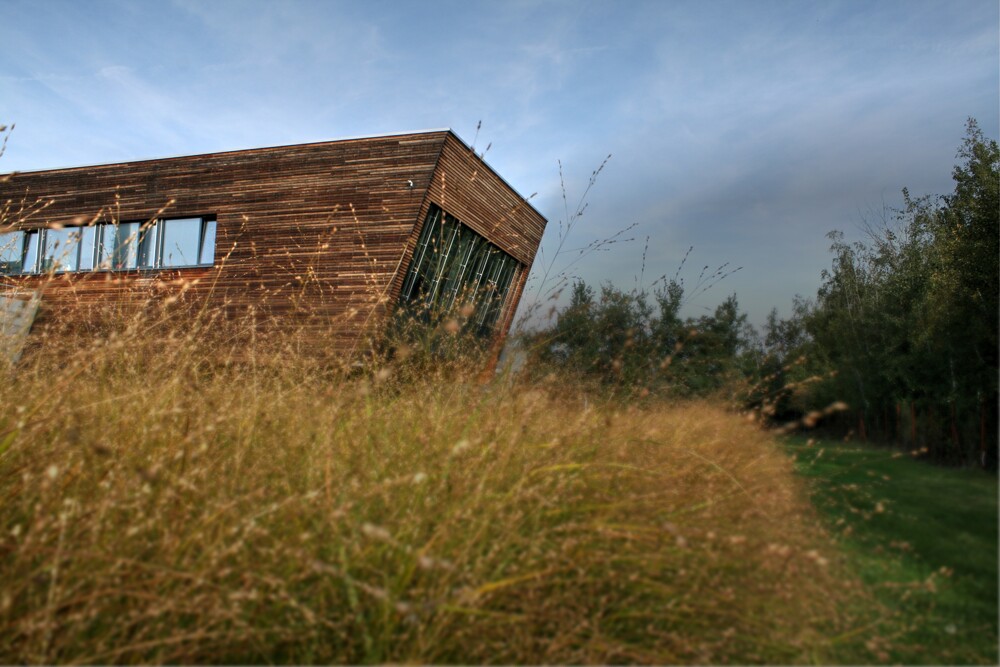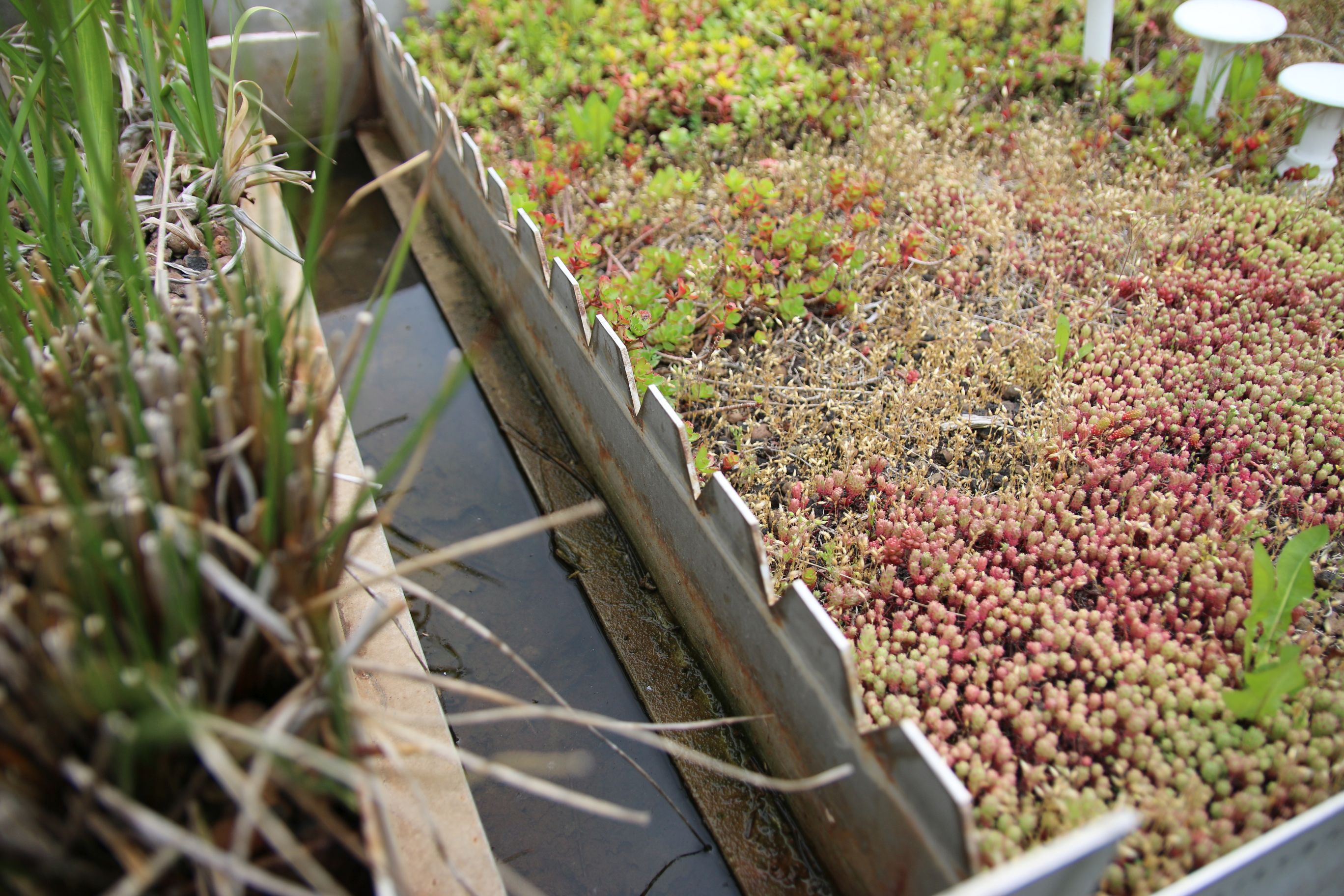

The Urban Ecohydrology research team of the CTU UCEEB has launched a four-year project focused on experimental and mathematical
modeling of nature-based roof systems for wastewater treatment. The aim is to improve understanding of water flow and transport
processes in interaction with vegetation in these systems, and to promote their wider use in urban environments. The research
results will contribute to sustainable water resource management, enhance city resilience to climate change, and support the
development of a circular economy.
Our project focuses on decentralized roof systems based on the principle of shallow-root treatment combined with other elements
that produce biologically treated wastewater, mainly for irrigating urban greenery. We will test the use of circular materials
(sorted recycled demolition waste and biochar from pyrolyzed sewage sludge) for the construction of root treatment plants
and associated green roof layers.
The main experiments will take place on a pilot installation of a so-called hybrid green roof, which combines a horizontal
root treatment unit and a semi-intensive vegetation layer. In addition to full-scale tests, we will conduct laboratory experiments
on two smaller models and develop mathematical models of water flow and transport processes. Numerical models for simulating
variably-saturated movement of water, energy and solute transport, will be calibrated using direct experimental data. Cooperation
with international partners will allow us to compare the results with other similar systems and contribute to the optimization
of their design and operation. In the long term, the results of the project will lead to more efficient decentralized wastewater
treatment and reuse.
The project Modeling and optimization of transport processes in porous systems – nature-based solutions for wastewater
treatment and reuse is supported by the Ministry of Education, Youth and Sports within the INTER-EXCELLENCE II program, subprogram
INTER-COST – LUC25.